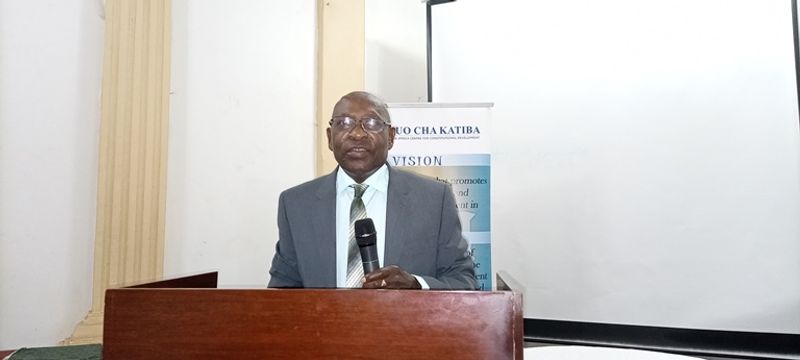

Professors Frederick Ssempebwa
The circumstances that forced former presidential contender Amama Mbabazi to challenge the victory of Yoweri Kaguta Museveni in the aftermath of the 2016 general elections are very much around and possibly made worse by the COVID-19 directives, a group of eminent legal experts have concluded.
Professors Frederick Ssempebwa and Frederick Jjuuko were last week joined by Makerere Law dons Robert Kirunda and Benson Tusasirwe to warn that the government has done little and possibly regressed in as far as creating conditions for holding of free and fair elections.
Speaking at a media breakfast on the significance of the case in which they sued the government for failing to implement the decisions of the Supreme Court, the legal brains unanimously concluded that the government has failed to put in place meaningful electoral reforms that were directed by the supreme court.
In their ruling on the petition that was filed by former Prime Minister John Patrick Amama Mbabazi Versus Yoweri Museveni and the Electoral Commission following the disputed 2016 polls, the justices made fundamental decisions.
These included: increasing the number of number of days for filling a presidential election petition and disposing it, providing for use of oral evidence in hearing election petitions on top of affidavits, increasing time for holding fresh presidential elections if annulled as well as introducing a law on use of technology in elections.
Other recommendations of the court were; ensuring equal use of state media by both government and opposition candidates, prohibiting giving donations during campaigns and prohibiting public officials from participating in election campaigns
The lack of spirit of reform was first illustrated by the government’s initial reluctance to even make small amendments to electoral laws.
Having noticed this, the two legal brains sued the government in the Supreme Court in the Prof. F.Ssempebwa, Prof. F. Jjuuko and Kituo cha Katiba versus Attorney General of Uganda in which they sought to hold the government in contempt for disobeying lawful orders.
The case was decided in 2019 largely in favour of the government.
The professors and their lawyers told Journalists last week that they understood that court didn’t want to create a crisis which is why they gave the Attorney General more time to make the reforms.
But the professors argued that although the government went ahead to bring reforms, it still lacks the spirit to bring about an environment for holding of free and fair elections.
Prof. Ssempebwa argued that: “Most of the failures of the Electoral Commission are due to untimely electoral reforms. Now you are hearing that Parliament is waking up to make laws that will affect elections that are around the corner.
“When those laws are made, they involve funds, and other specific arrangements such as gazetting boundaries.
“But as you can see they are very late. Prof. Ssempebwa also argued that whereas the government made amendments to extend the number of days within which evidence can be brought in a presidential petition, the few days that they added, cannot make a major difference.
Prof. Ssempebwa observed that the current environment is not any different from what it was in 2016.
Dr. Benson Tusasirwe who, along with Kirunda, represented the petitioners, , (Profs. Ssempebwa and Jjuuko) was more scathing in his contempt of the government.
Tusasirwe argued that: “There is something fundamentally wrong with the way our government does things about elections. Because if they had genuinely wanted to create new constituencies, why did they have to wait for the last minute?” he wondered.
Tusasirwe argued that the government made amendments for the sake of it without having the spirit of reform.”
“They made laws prohibiting public servants against getting involved in elwctions. But those who have observed the NRM primaries, would attest to the fact that it was more like a state function as we witnessed the involvement of the pokice, the army and so forth.”
Tusasirwe and colleagues concluded that the government tinkered with the law but have not changed the spirit of ensuring that the country holds free and fair elections.”














Henry Lutaaya
Leave a Comment
Your email address will not be published.